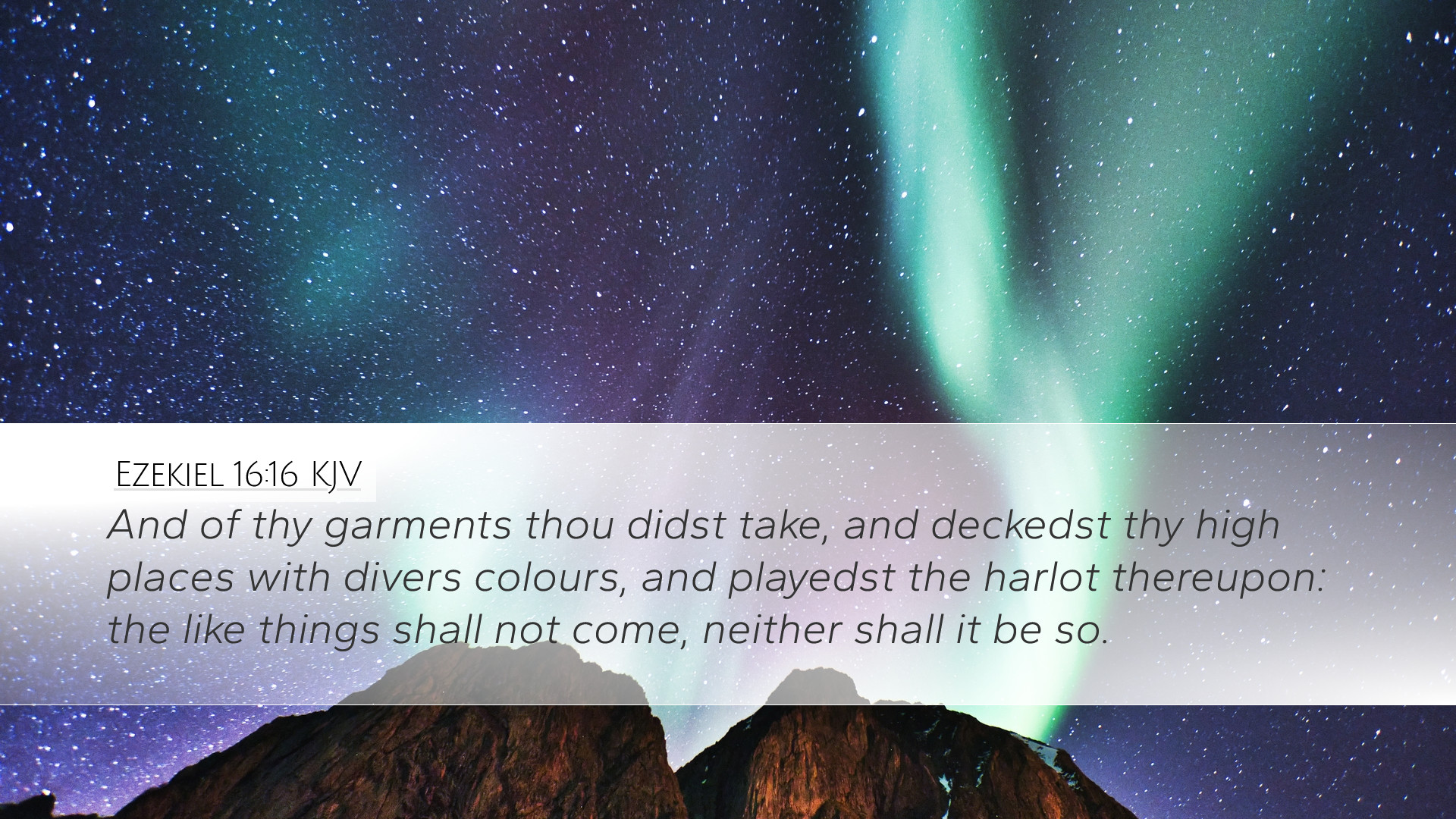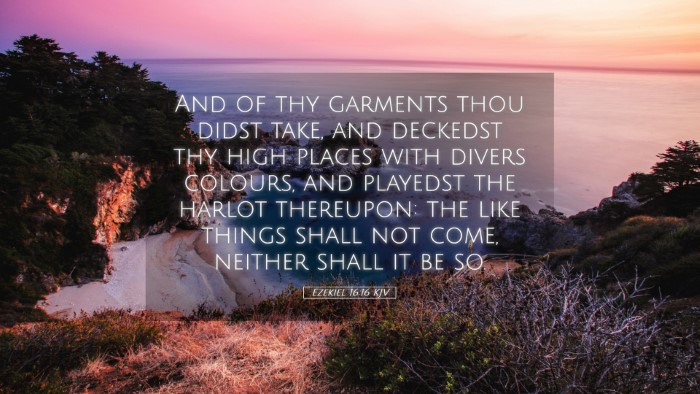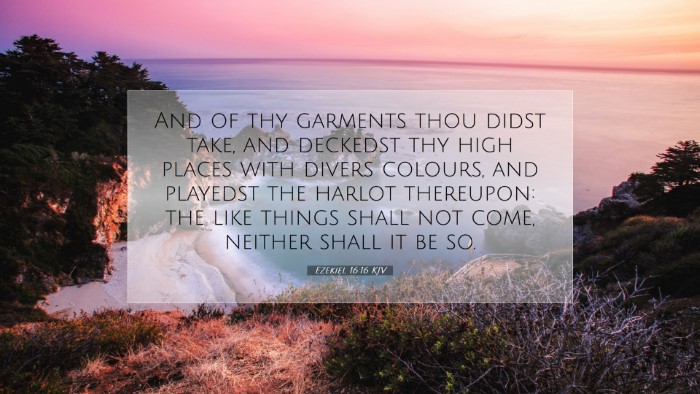Ezekiel 16:16 - A Commentary
"And of thy garments thou didst take, and deckest thy high places with diverse colours, and played the harlot thereupon: the like things shall not come, neither shall it be so."
This verse is a potent illustration of Israel's unfaithfulness to the Lord, depicted through the metaphor of promiscuity. Ezekiel uses vivid imagery to communicate profound theological truths concerning Israel's spiritual infidelity.
Contextual Overview
The chapter is essentially a narrative of God's covenantal relationship with Israel, reflecting on how He chose and blessed them. However, with their unfaithfulness, they transformed this relationship into one of betrayal. A comprehensive understanding of the socio-historical context is essential.
Insights from Public Domain Commentaries
Matthew Henry's Commentary
Matthew Henry interprets this verse as a stark warning against the idolatrous practices of Israel. He emphasizes that the gifts and blessings given by God are misused when given to idolatrous pursuits. In a metaphorical sense, the 'garments' refer to the spoils and magnificence of God’s grace, which Israel used to adorn their pagan worship. Henry notes:
- God's gifts should lead us to glorify Him, but Israel chose to adorn false gods instead.
- The act of playing the harlot signifies spiritual infidelity and betrayal against God, who had shown deep love and concern.
Albert Barnes' Notes on the Bible
Albert Barnes elucidates that this verse highlights an act of rebellion by Israel, where they took the very blessings God had bestowed upon them and used them to build up high places for idol worship. Barnes makes several key observations:
- The 'high places' symbolize the idolatrous centers that proliferated in Israel's history, which were often linked to the altars of Baal and other deities.
- The phrase 'the like things shall not come' serves a dual purpose: as a declaration of judgment and a promise that such abominable actions will not be tolerated.
Adam Clarke's Commentary
Adam Clarke offers a detailed analysis of the metaphorical implications of the garments. He posits that these garments signify both the wealth and the spiritual gifts given to the nation. Clarke notes:
- Taking the garments to deck high places reflects a rejection of God’s intended purpose for His people.
- The statement implies a greater theological assertion about God's justice and the inherent dangers of spiritual pride.
Theological Implications
In reflecting on this verse, it is important to unpack several theological themes:
- God’s Faithfulness: Despite Israel's treachery, God's commitment to His covenant remains unwavering. This contrasts the divine fidelity with human infidelity.
- The Nature of Sin: The imagery of harlotry points to the ridiculousness of turning away from a faithful God to pursue what is ultimately worthless.
- The Call to Repentance: Ezekiel's prophetic words serve as a wake-up call to Israel, indicating that they must repent from their ways to avoid divine judgment.
Application for the Modern Reader
This verse compels contemporary readers, including pastors and theologians, to examine their lives and communities for similar patterns of idolatry:
- Consider the 'garments' given by God—what blessings and resources are being used for purposes contrary to His will?
- Reflect on personal and communal faithfulness—are we valuing our relationship with God, or are we currying favor with worldly pursuits?
- Emphasize the necessity of teaching congregations about the dangers of spiritual infidelity and the importance of fidelity to God.
Conclusion
Ezekiel 16:16 serves as a profound reminder of the fragility of our covenant relationship with God. As we glean insights from the rich theological heritage of commentaries by Matthew Henry, Albert Barnes, and Adam Clarke, we must approach our allegiance with vigilance and dedication, lest we fall into the unfaithfulness depicted in this verse. Let us strive to use God's blessings to glorify Him, rather than veering towards spiritual harlotry.


